The National Commission for Civic Education (NCCE) organized an enlightening session in Jirapa focused on engaging the youth in Preventing and Containing Violent Extremism (PCVE).
Over fifty young individuals, representing various groups and associations in Jirapa, gathered to explore two important topics: 1. Community-based mechanisms for countering arms proliferation and violent extremism, and 2. Peace-building mechanisms and social cohesion.
These subjects were expertly presented by Rev. Fr. Benedict Tang, the Parish Priest of St. Joseph Catholic Parish, and ASP Bright Acquah, the Municipal Police Commander of Jirapa, respectively.
During the opening address, Mr. Ambaahikpiengu Norbert, the Jirapa Municipal Director of the NCCE, highlighted the session’s aim to equip participants with the knowledge and raise awareness among the youth about the signs and characteristics of violent extremism.
He encouraged them to pay full attention to gain invaluable information and knowledge and urged them to share this knowledge with their peers and communities.
Some participants who spoke to UpperWest360 after the session expressed their enjoyment and understanding of the engagement. They appreciated the absence of language barriers as all speeches were translated by Mr. Sulemani Deriguba, the Jirapa Municipal Assistant Civic Education Officer (ACEO).
Mr. Victor Elikplim Nuworkpor, the Upper West Regional Director of NCCE, expressed gratitude to the participants for their active engagement throughout the session.
In his brief address, he emphasized the menace of violence and radicalization among the youth, highlighting factors such as religious convictions, political ideologies, and prejudices against specific ethnic groups as drivers. He emphasized that PCVE aims to promote social cohesion, peace, and tolerance.
According to him, the goal of PCVE is to ensure that the youth understand the negative consequences of joining extremist and terrorist groups and foster peaceful coexistence while rejecting violent extremism in Ghana.
Ms. Lucille Hewlett Annan, the Commission’s secretary, expressed joy over the exceptional success of the session. She congratulated the participants and urged them to become ambassadors of PCVE in their respective communities. She also advised them to maintain good relations and cooperate with the security agencies by reporting any unusual or suspicious activities.
The NCCE, with financial support from the European Union, is currently engaged in a comprehensive nationwide initiative aimed at raising community awareness regarding the identification of early warning signs of extremist violence.
This initiative also focuses on promoting mechanisms for peace-building and implementing measures to counter radicalization among young people. The urgency of this endeavor is heightened due to the rise in violent incidents observed in neighboring countries.
Violent extremism encompasses the adoption or advocacy of extreme ideologies, beliefs, or actions that employ violence to achieve political, ideological, religious, or social objectives. It involves individuals or groups who use violence to advance their agenda, often causing fear, intimidation, or harm to others.
Violent extremism can take various forms, such as terrorism, insurgency, or radicalization. It may be driven by factors like political grievances, religious fanaticism, social alienation, or ideological radicalization.
It is important to note that violent extremism should not be associated with any specific religion, ethnicity, or nationality, as extremist ideologies can emerge from diverse backgrounds and affiliations.
Addressing violent extremism requires comprehensive strategies that encompass social, economic, political, and psychological dimensions. Such strategies aim to prevent the spread of radicalization, counter extremist narratives, promote inclusive societies, and ensure the safety and security of communities.
Below are some pictures from the session held at McNaulty Hall in Jirapa, Upper West Region.
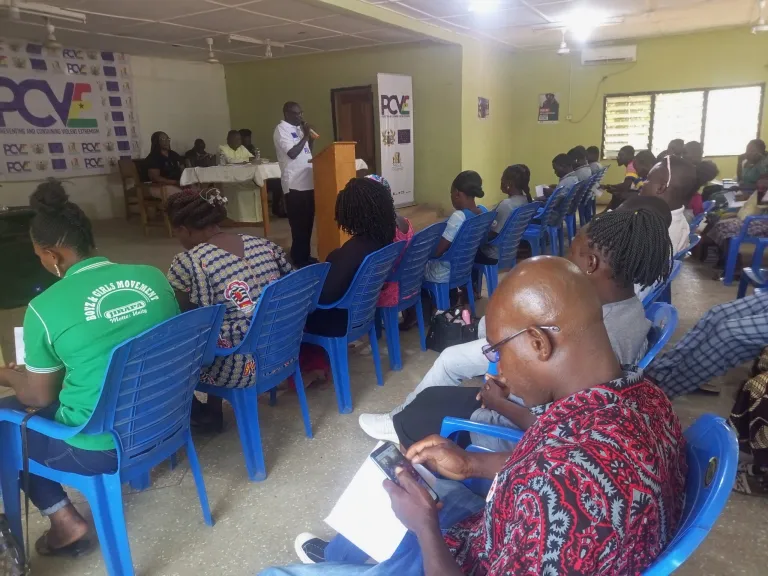
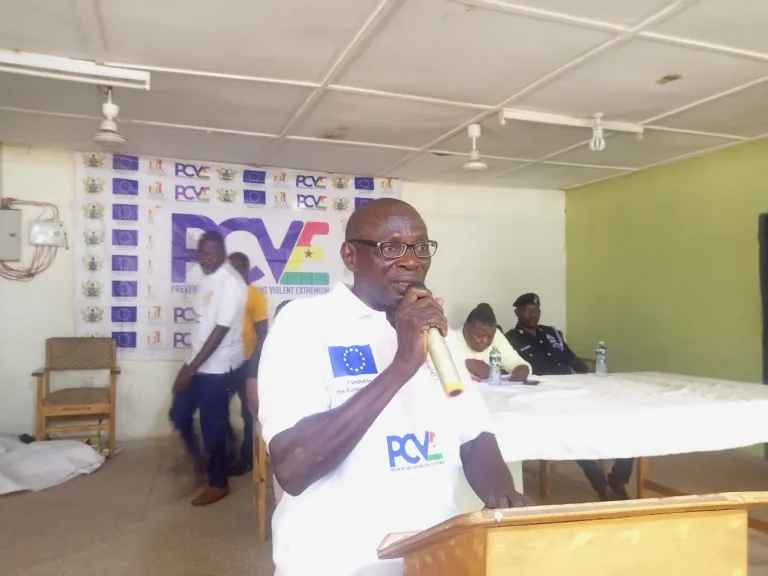
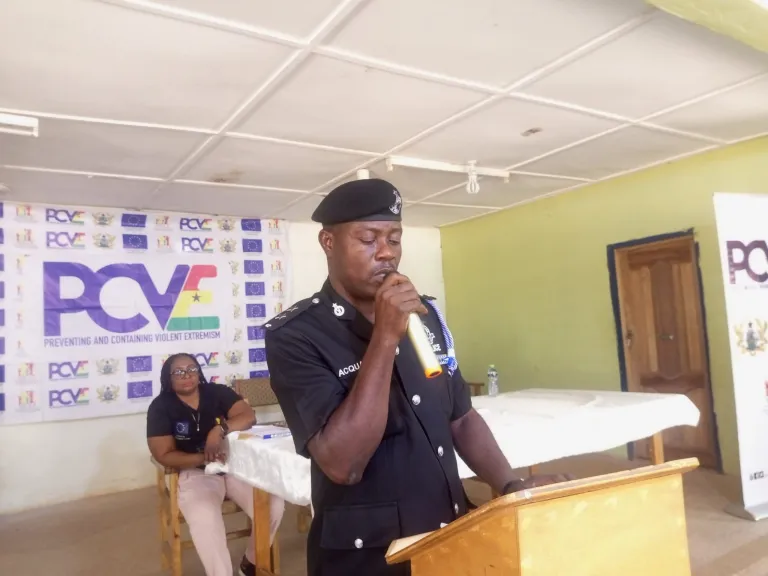
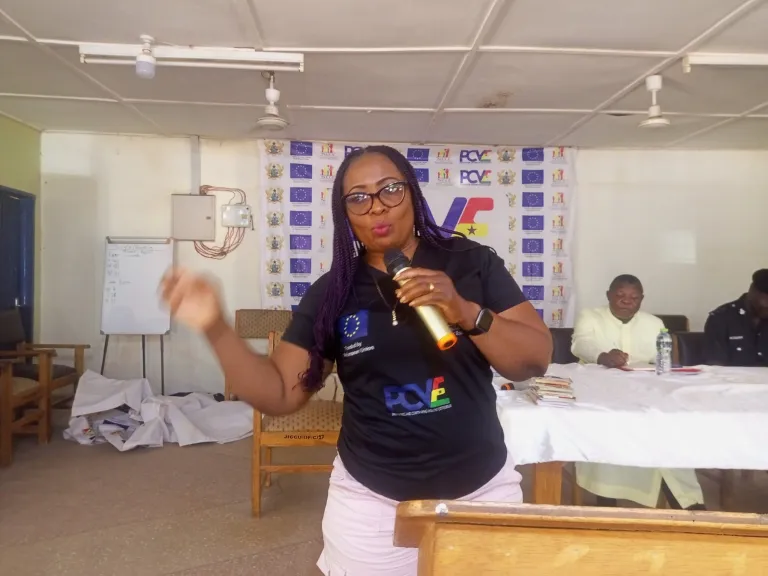

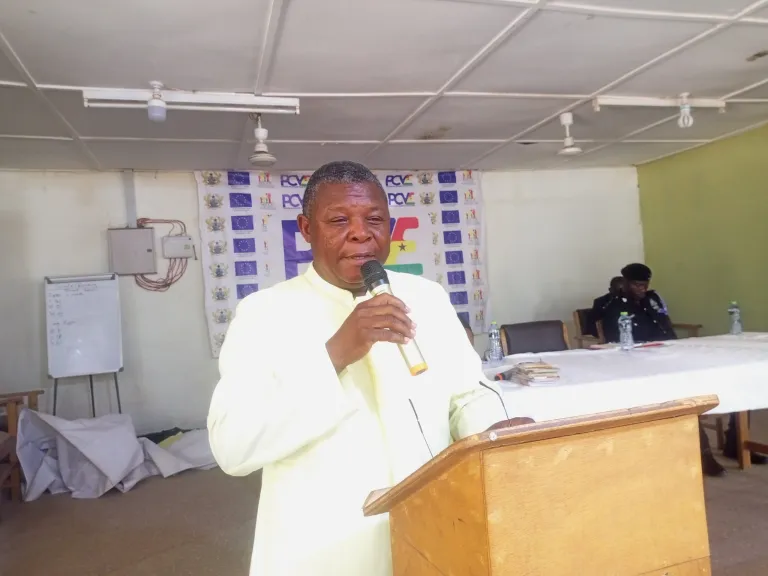
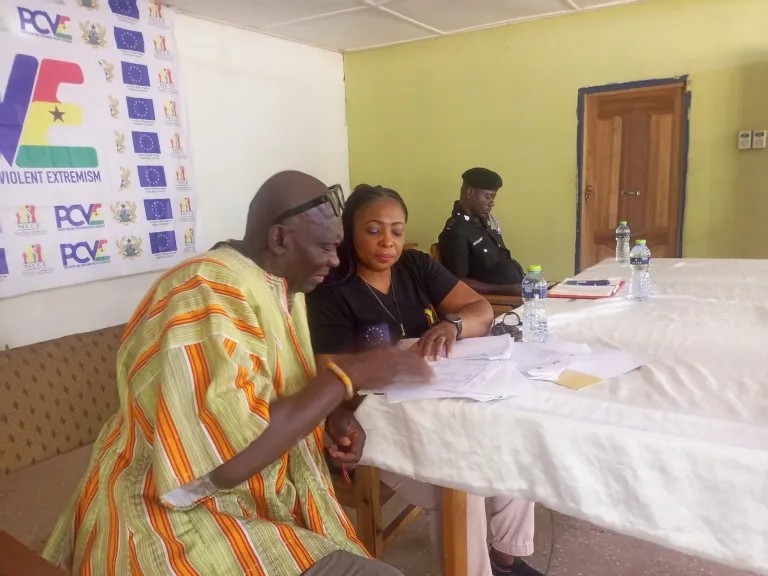
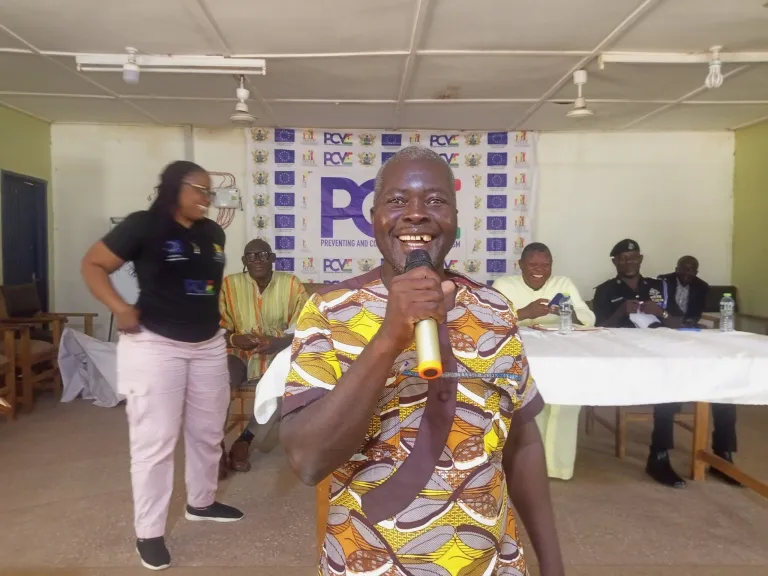
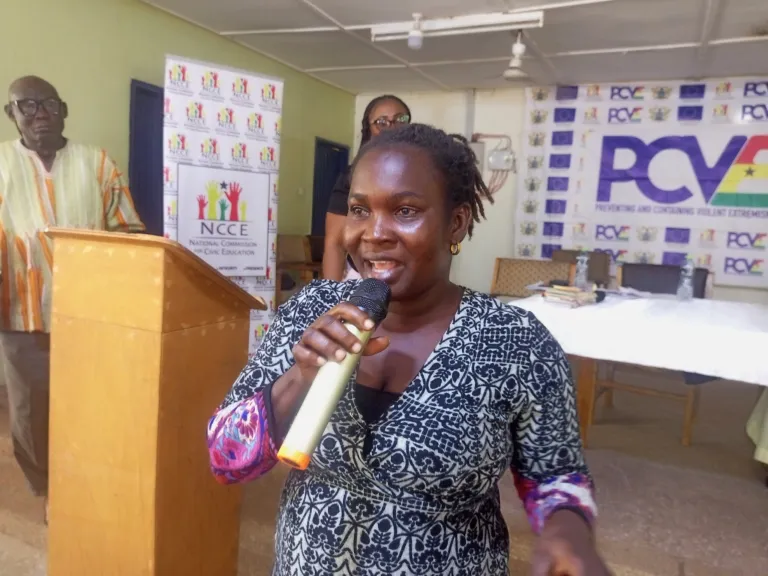
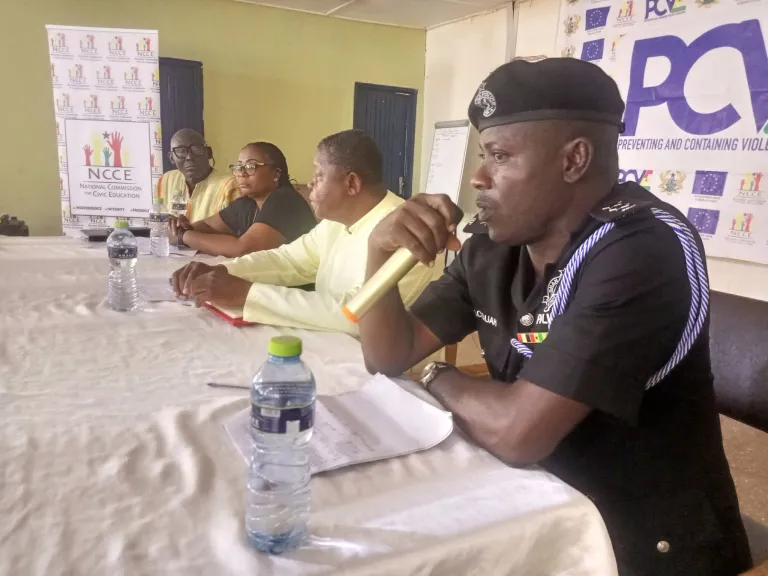

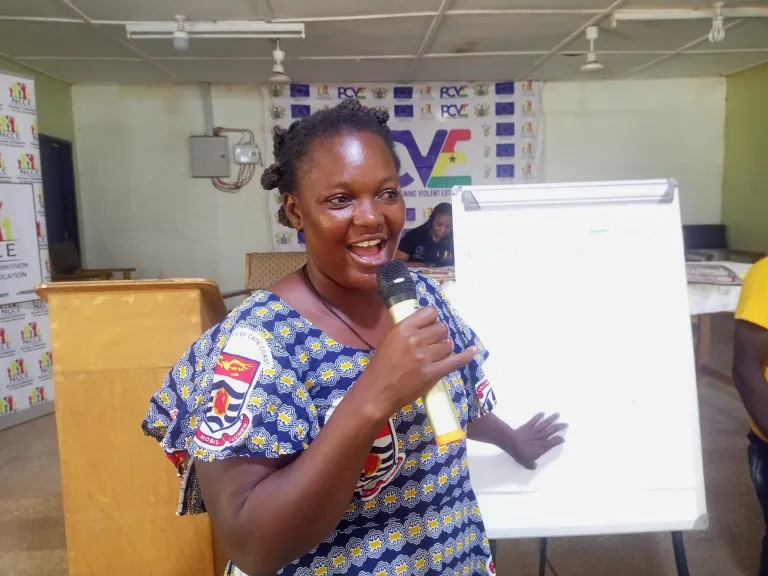
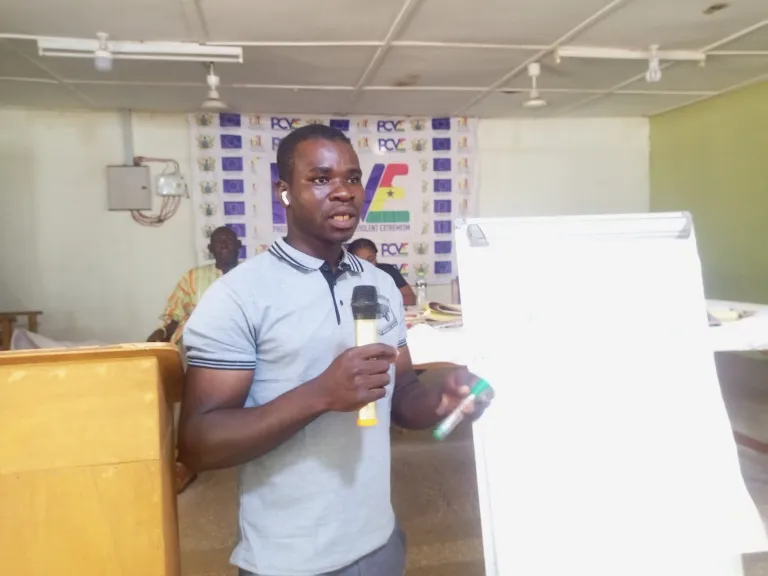
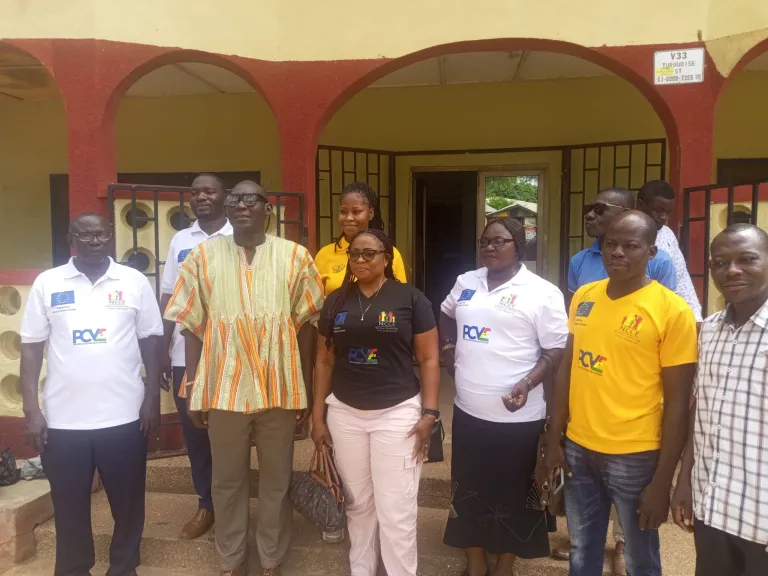
_
Follow us on our social media pages for more stories and posts from the NCCE.
https://www.instagram.com/nccegh1/
https://www.facebook.com/nccegh/


Leave a comment